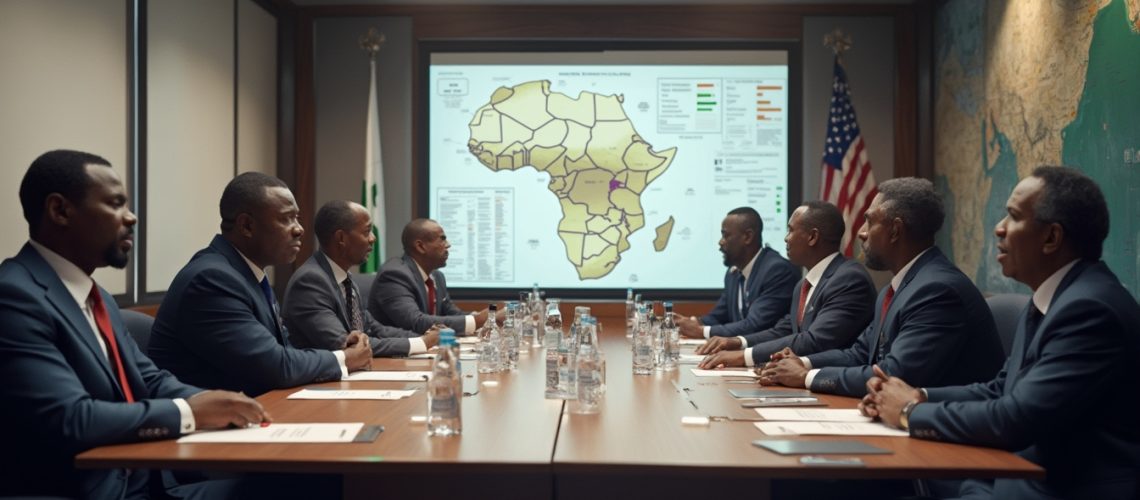Botswana signs diamonds deal with De Beers has marked a transformational moment in the nation's approach to mineral resource management. In February 2025, after years of delicate negotiations and economic strategising, Botswana signs diamonds deal with De Beers as part of a broader effort to secure long-term national benefits and global influence. This agreement not only strengthens the nation’s position in the international diamond market but also exemplifies how a resource-rich country can leverage its assets for sustainable development.
Evolving Dynamics and Strategic Partnerships
The partnership between Botswana and De Beers has evolved over decades into a strategic alliance that has helped shape Botswana’s economic landscape. The recent deal, which many industry experts describe as a landmark diamond deal landmark diamond deal, is emblematic of how resource nationalism can drive economic transformation. During the negotiation period that began in 2018, the government meticulously balanced national interests with the demands of a global diamond powerhouse.
Throughout this process, several key considerations underscored the urgency and complexity of the agreement:
- Balancing national economic priorities with corporate interests
- Ensuring transparency and equitable revenue sharing
- Preparing for evolving global market trends
Each of these points highlights how Botswana signs diamonds deal with De Beers not only as a commercial transaction but as a strategic framework designed to stimulate future growth.
Historical Context: A Relationship That Shaped a Nation
Botswana’s economic transformation is deeply intertwined with its diamond sector. The nation’s long-standing relationship with De Beers played a critical role in propelling Botswana from low-income beginnings to an upper-middle-income status. The success of the Jwaneng mine, which accounts for approximately 15% of the global diamond value, demonstrates the central role that partnerships like these play. Over time, Botswana has become a model for resource management, underscoring the potential of strategic agreements.
This evolution is further examined in the context of global market dynamics, with industry experts noting how the collaboration has often set the stage for similar partnerships in other emerging markets. In analysing these trends, some reports provide global market insights that compare these transformative agreements with shifts seen in other commodities markets.
Economic and Strategic Implications
The new agreement carries profound economic and strategic implications. Government officials have indicated that the deal will not only bolster Botswana’s GDP but also facilitate vital national development projects. By formalising such a comprehensive framework, Botswana signs diamonds deal with De Beers on terms designed to ensure that the benefits span decades rather than short-term gains.
Key anticipated impacts include:
- Increased revenue streams dedicated to public infrastructure
- Improved employment opportunities that stimulate local economies
- Enhanced regulatory frameworks for future mineral extraction projects
In addition, the agreement plays a critical role in diversifying the nation's economic dependencies beyond traditional diamond exports. This diversification is important to maintain sustainable growth, as the government considers investments in various sectors. For instance, initiatives focused on gold and silver trends offer insight into optimising other mineral investments.
A recent external analysis by a reputable mining industry resource provided in a mining industry analysis has highlighted that such strategic agreements could serve as benchmarks for future collaborations worldwide.
Navigating Challenges and Complex Negotiations
The lengthy seven-year negotiation process was punctuated by several significant challenges. One of the foremost hurdles was balancing the varying interests of multiple stakeholders amid changing political dynamics. During this period, Botswana signs diamonds deal with De Beers as a symbol of continuity, despite debates over revenue sharing and beneficiation practices.
Key challenges during the negotiations included:
- Balancing national economic policies with the interests of international investors
- Addressing technical aspects of beneficiation requirements
- Managing the changing political landscape amidst multiple presidential administrations
Moreover, the multifaceted nature of these negotiations required a careful assessment of both economic and political ramifications. As critics argued, any compromise on transparency or accountability could have broader impacts on the country’s reputation. To this end, the administration’s determination was essential in overcoming these obstacles, ensuring that the final agreement met both national and global standards.
In parallel, support for the new agreement is seen in innovative approaches adopted in other regions. For example, south africa ferroalloy strategies illustrate how neighbouring economies are also adapting their resource management policies in response to evolving international market pressures.
Looking to the Future: A Sustainable Roadmap
The future of Botswana’s diamond industry appears robust, with the new deal setting the stage for several long-term initiatives aimed at economic diversification and sustainable growth. Beyond its immediate fiscal contributions, the agreement is expected to foster foreign direct investment by signalling robust policy frameworks and stable business environments.
Key future initiatives include:
- Expanding the country's infrastructure to support mining and refining operations
- Strengthening international partnerships to drive technological innovations in mineral extraction
- Promoting sustainable practices to mitigate environmental impacts
These initiatives can be seen as stepping stones towards a visionary economic plan. Notably, efforts to address critical mineral shortages are integrated into this forward-looking strategy. In turn, this not only supports long-term revenue growth but also aligns with global environmental and energy transition goals.
An assessment by financial experts, as highlighted in a financial perspectives review, confirms that the economic trajectory laid out by Botswana signs diamonds deal with De Beers will likely yield both direct and ancillary benefits for the nation’s fiscal health.
Lessons Learnt and Strategic Takeaways
Several lessons emerge from the signing of the new diamond sales agreement:
- The indispensable role of patience and protracted negotiations in achieving equitable terms
- The strategic necessity of embedding national development goals within commercial agreements
- The benefits of aligning resource management with broader economic diversification strategies
These takeaways not only highlight Botswana’s resilience but also offer a blueprint for other resource-rich nations. By examining the factors that contributed to the success of this deal, stakeholders can better understand how to navigate complex international markets.
In summary, the agreement provides a clear illustration of how resource nationalism, when combined with deliberate global strategies, can foster sustainable economic growth. Botswana signs diamonds deal with De Beers stands out as a unique case study in modern economic policymaking, offering lessons applicable to similar agreements around the world.
Frequently Asked Questions
Why Did the Agreement Span Seven Years?
The extended negotiation period was a consequence of multiple intersecting factors:
- The need to recalibrate approaches with shifting political administrations
- Rigorous deliberations over revenue sharing models
- The challenge of addressing dynamic global market trends
Each factor demanded careful consideration to ensure that the final terms aligned with long-term national objectives while still suiting the operational requirements of a global entity like De Beers.
What Are the Broader Long-Term Implications for Botswana?
Beyond immediate revenue enhancements, the agreement has several long-term implications:
- It promises a stable source of income for crucial public infrastructure projects.
- It is set to significantly boost the nation’s global investment profile.
- It encourages the development of diverse mineral sectors, reflecting a commitment to sustainable growth.
In conclusion, Botswana signs diamonds deal with De Beers not only encapsulates decades of economic evolution and negotiation expertise but also sets in motion a sustainable development model for future generations. This landmark agreement reaffirms Botswana's commitment to transforming its mineral wealth into long-term national prosperity while positioning itself as a key player in the global diamond market.
Want to Discover the Next Big Investment Opportunity?
Unlock real-time insights into significant mineral discoveries with Discovery Alert's AI-powered notifications, designed to simplify complex market data and help investors—from newcomers to seasoned traders—identify promising opportunities across the ASX. Start your 30-day free trial today and transform the way you approach mineral investing.







